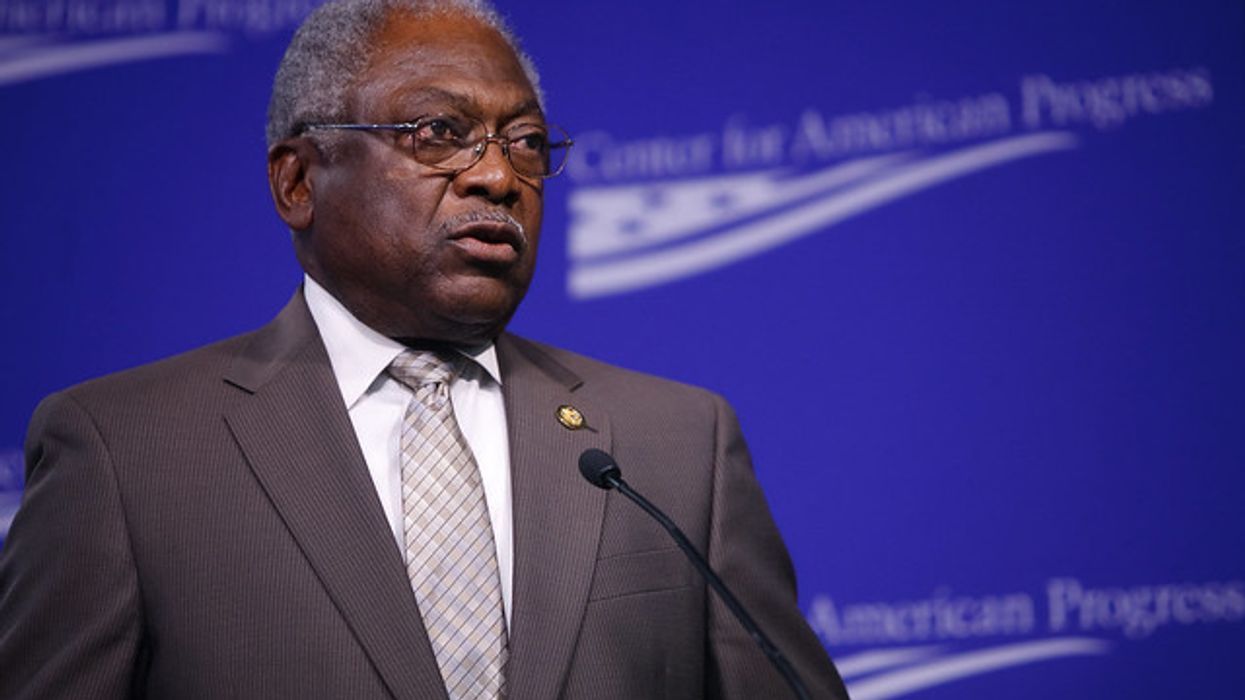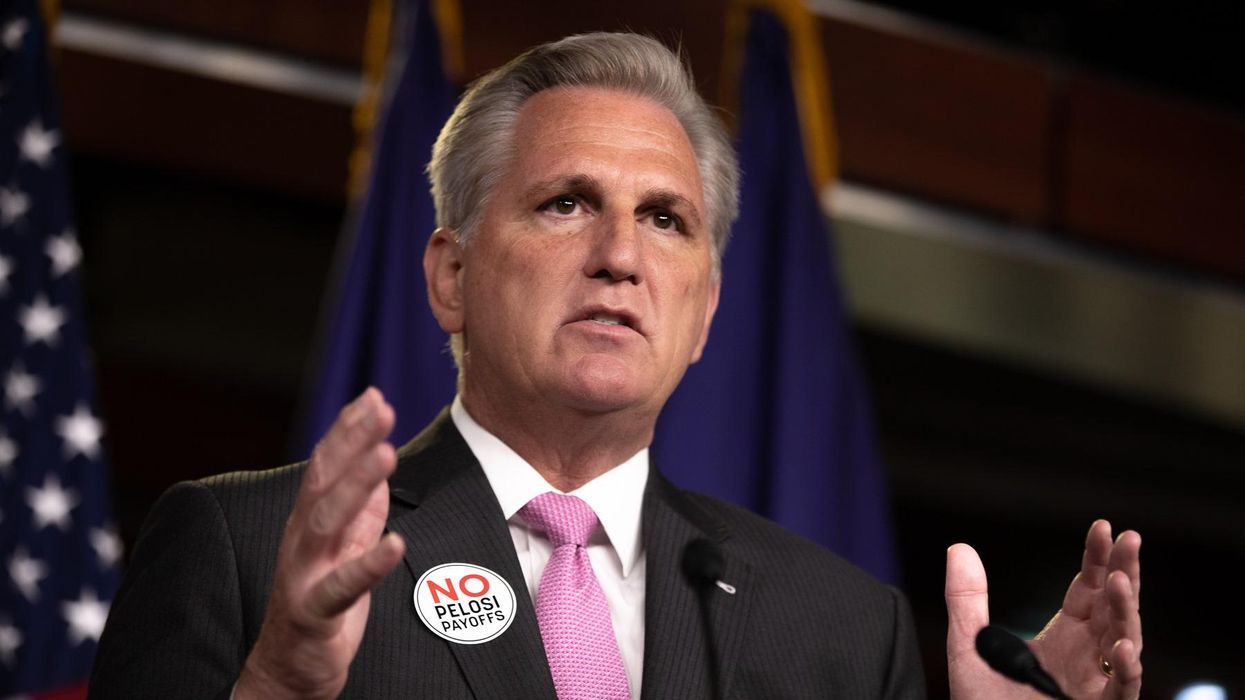When Worries Haunt Jim Clyburn, It's Time To Fear For America
When I interviewed House Majority Whip James Clyburn in 2014 about his memoir Blessed Experiences: Genuinely Southern, Proudly Black, the South Carolina Democrat was confident in America’s ability to find its way, no matter how extreme the political swings might appear at any given time.
“The country from its inception is like the pendulum on a clock,” the congressman told me. “It goes back and forward. It tops out to the right and starts back to the left — it tops out to the left and starts back to the right.” And remember, he said, it “spends twice as much time in the center.”
I have always appreciated Clyburn’s wisdom, his passion, and his commitment to his constituents. But most of all, I have admired the optimism of this child of the South, who grew up hemmed in by Jim Crow’s separate and unequal grip, yet who believed in the innate goodness of America and its people. Clyburn put his own life on the line to drag the country — kicking and screaming — into a more just future.
He was convinced, I believe, that no matter how off balance America might become, the country would eventually right itself.
A lot has changed since that afternoon, when he sat at a long table, signing books and chatting in the Harvey B. Gantt Center for African-American Arts + Culture in Charlotte, North Carolina, right beside his beloved wife. Emily Clyburn, a passionate civil rights activist, died in 2019, though Clyburn often references her wise words.That optimism, however, has lost its glow.
Clyburn’s worries drove our conversation in July 2021, the second of two times he was a guest on my CQ Roll Call “Equal Time” podcast. The topic was voting rights, and Clyburn had opinions about the Senate procedure that would eventually stall legislation to reform those rights and restore provisions invalidated by a Supreme Court decision in 2013.
“When it comes to the constitutional issues like voting, guaranteed to Blacks by the 15th Amendment to the United States Constitution, that should not be filibustered,” he said. And about restrictive laws being passed in states? “I want you to call it what it is. Use the word: nullification. It is voter nullification.”
“This isn’t about just voting; this is about whether or not we will have a democracy or an autocracy.”
With those remarks in the back of my mind, it was still startling to hear Clyburn last week on MSNBC, talking about his GOP House colleagues, including Minority Leader Kevin McCarthy of California, and their waffling about complying with subpoenas from the House select committee investigating the January 6, 2021, attack.
When asked if the government and Capitol Hill could “be fixed,” Clyburn, known for his philosophical “this too shall pass” mantra, instead replied, “I don’t know.” He talked about threats to undermine democracy and said the country is “teetering on the edge.”
And that was before the shooting in Buffalo that claimed the lives of ten beautiful Americans doing something as routine as Saturday supermarket shopping. African Americans were targeted by an 18-year-old who wore his “white supremacist” label like a badge of honor in a heavily plagiarized racist screed, a man whose stated goal was to “kill as many blacks as possible.”
Is it any wonder Clyburn’s optimism has been waning in these times?
Among Clyburn’s current House colleagues sits Rep. Elise Stefanik of New York, the number three House Republican, whose Facebook ads echoed the “replacement” conspiracy theory swallowed hook, line and sinker by the Buffalo shooter. “Radical Democrats are planning their most aggressive move yet: a PERMANENT ELECTION INSURRECTION,” was one message shared by the once moderate congresswoman, who replaced Wyoming Republican Liz Cheney in House leadership.
Rep. Scott Perry (R-PA) has said many Americans believe “we’re replacing national-born American — native-born Americans — to permanently transform the political landscape of this very nation.”
Rep. Matt Gaetz (R-FL), someone you can always count on to say and do the very worst thing, has co-signed the near nightly rantings of a Fox News host, once tweeting, “Tucker Carlson is CORRECT about Replacement Theory as he explains what is happening to America.”
While most Republican House members skirt the edges of the most incendiary claims, you don’t hear them loudly denouncing or disavowing them.
The accused Buffalo shooter was straightforward in his intentions as he found heroes in the racist and conspiracy-driven murderers who have cut a hateful swath through Norway, New Zealand, El Paso, Pittsburgh and Clyburn’s own home state of South Carolina, at places of worship, whether they be church, synagogue, or mosque.
The problem is much deeper than the availability of guns, and it didn’t surface in just the past few years, though the Obama family in the White House woke those uncomfortable with an evolving country and President Donald Trump cannily dug into a “Make America Great Again” slogan that looked back, not forward.
An accurate reading of history might have taught the shooter that scapegoating African Americans for his own emptiness and rot is not new, and that online conspiracies crumble when bombarded with truth. But many of the same people dismissing Saturday’s planned killing spree as the aberrant act of a disaffected and deranged “youth” would replace real history with rose-colored propaganda in the nation’s classrooms. Many Americans could use an education when polls show a third of them — and nearly half of Republicans — buy into the “replacement” lie.
It was the ugly truth, not fantasy, when President Joe Biden on Tuesday became counselor in chief, a role I’m sure he wishes he never had to play. When he and first lady Dr. Jill Biden traveled to Buffalo, the president blessedly took the time to note each individual — beloved wives and husbands, daughters and sons, brothers and sisters — emphasizing the humanity a shooter wanted to erase.
“In America, evil will not win, I promise you. Hate will not prevail. White supremacy will not have the last word,” he proclaimed.
But when it’s stoked by the rhetoric of fear and blame of the other, hate too often finds a way.
Maybe that is what’s haunting Clyburn, hero and longtime fighter, because he has seen so much. Now, when democracy is at stake, where will the pendulum stop?
Reprinted with permission from Roll Call.
Mary C. Curtis has worked at The New York Times, The Baltimore Sun, and The Charlotte Observer, as national correspondent for Politics Daily, and is currently a senior facilitator with The OpEd Project. Follow her on Twitter @mcurtisnc3.




